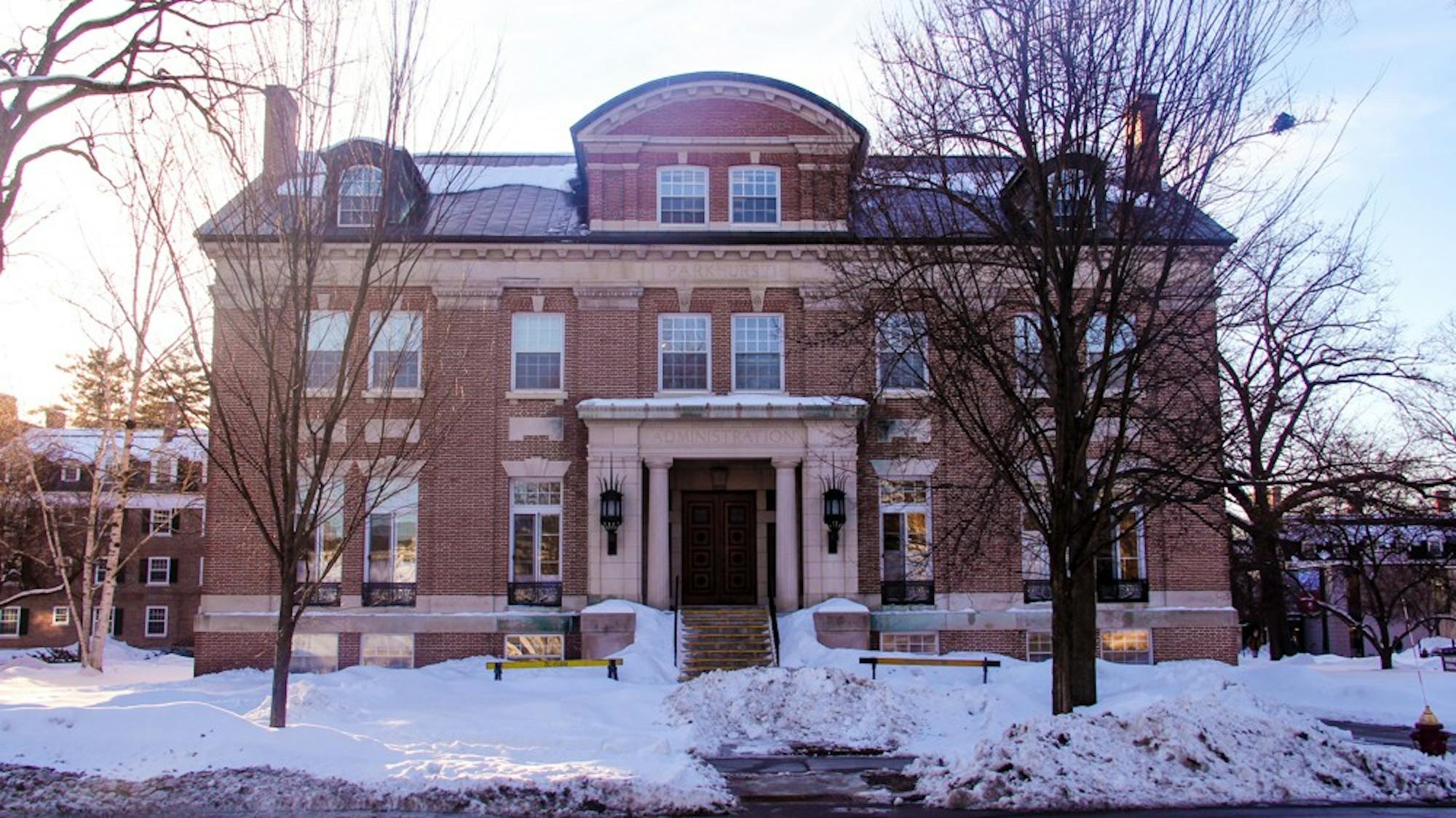The College currently estimates an $83 million loss in revenue for fiscal year 2020 as a result of the economic ramifications of the COVID-19 pandemic, according to chief financial officer Mike Wagner.
According to Wagner, of the $83 million in projected losses, $51 million is based on losses in operating income, including losses related to room and board fees, investment income shortfall, professional schools and unrestricted gifts. The other $32 million is based on anticipated losses in investments. Wagner added that while the College has a $19 million surplus for the 2020 fiscal year, most of that surplus has already been earmarked for future projects.

Wagner said that the College anticipates that the economic downturn will have the greatest impact on the College’s endowment, which contributes 27 percent of yearly revenues. He added that the College also anticipates decreases in donations and loss of revenue from auxiliary income sources like the Hanover Inn, which is owned by the College.
In an email sent to campus by provost Joseph Helble on April 3, the College announced freezes in staff hiring through the end of December and a suspension of wage and stipend increases for the 2021 fiscal year, which begins on July 1. Helble added, however, that the College still plans to continue hiring for positions of “essential need.”
“If an administrator or executive were to retire or leave for another job, we would need to fill those positions,” Helble said. “While there isn’t a list of exempted positions, we have a process whereby someone can demonstrate that a certain position is essential to the operations of their division or the institution as a whole.”
According to Wagner, the College has also made recommendations for reductions in “non-compensation expenses” that are “not critical” to spring quarter operations.
“If we don’t spend on things like travel, conferences and events — all kinds of stuff that wouldn’t make sense to spend given our situation — we could save between $10 and $12 million,” Wagner said.
One part of these “non-compensation expenses” includes funding for College-affiliated groups. According to an email obtained by The Dartmouth sent from the Council on Student Organizations to organization leaders on April 2, COSO will not be able to provide funding to student organizations for the spring term, even in cases where money had already been allocated to a group.
Max Holden ’22, a co-founder of the Dartmouth Energy Alliance, said that since his club has moved “entirely online” to Zoom meetings, it did not need funding for activities.
“Most of our budget was dedicated towards food and activities we can’t do this term, so we’ll just do online meetings and discussions about energy topics,” Holden said. “Overall, this doesn’t really affect our club too much for this term.”
While the College has promised to pay all regular staff through June 30, executive vice president Rick Mills said that the College cannot yet commit to payment beyond this date. He added that “everything is on the table” for changes in employment, including part time work, furloughs and layoffs.
The College has also taken steps to minimize risk and losses for the College endowment and other institutional investments from downturns in financial markets. Wagner said that the College will use funds from the revenue stabilization fund, which currently has a $50 million balance, to help offset the estimated $32 million loss in institutional investments. Mills also added that the College’s investment portfolio will use “liquidity tools” to protect the College’s investments.
“After the [financial crisis], we got much smarter in how we designed our endowment,” Mills said. “We have a set of credit tools like commercial paper and lines of credit, so we won’t have to sell at the bottom of the market.”
Responding to questions about the College’s decision not to withdraw funds from the endowment to cover deficits, Mills said that the decision to change the endowment draw rate is up to the Board of Trustees.
He added that tapping the endowment could “sacrifice” purchasing power in future years.
“If we overdraw in one period, we’ll have to underdraw in future periods,” Wagner said. “Some of the endowment gifts also have terms that may ultimately dictate what we can do.”
Helble said that the College has anticipated an increased demand for financial aid and that it has “prioritized” funding for financial aid for the upcoming year. Helble also reiterated that the College remains fully committed to meeting the financial need of every student.
Although Dartmouth has suspended research operations for spring term, the College does not anticipate any reductions in external funding for research, according to Helble. Mills added that the College may also receive research funding for COVID-19 research from the Coronavirus Aid, Relief and Economic Security Act.
With regard to fiscal year 2021, Helble said that the College has not made any further financial decisions due to the uncertainty of the next few months. Helble added that decisions will depend on both changes in financial markets and the ability of the College to return to normal operations.
“If the markets rebound substantially or the College returns normal residential operations for the summer and fall, this could substantially impact our budget for next year,” Helble said. “Our goal is to not make any decisions sooner than we would need to.”


